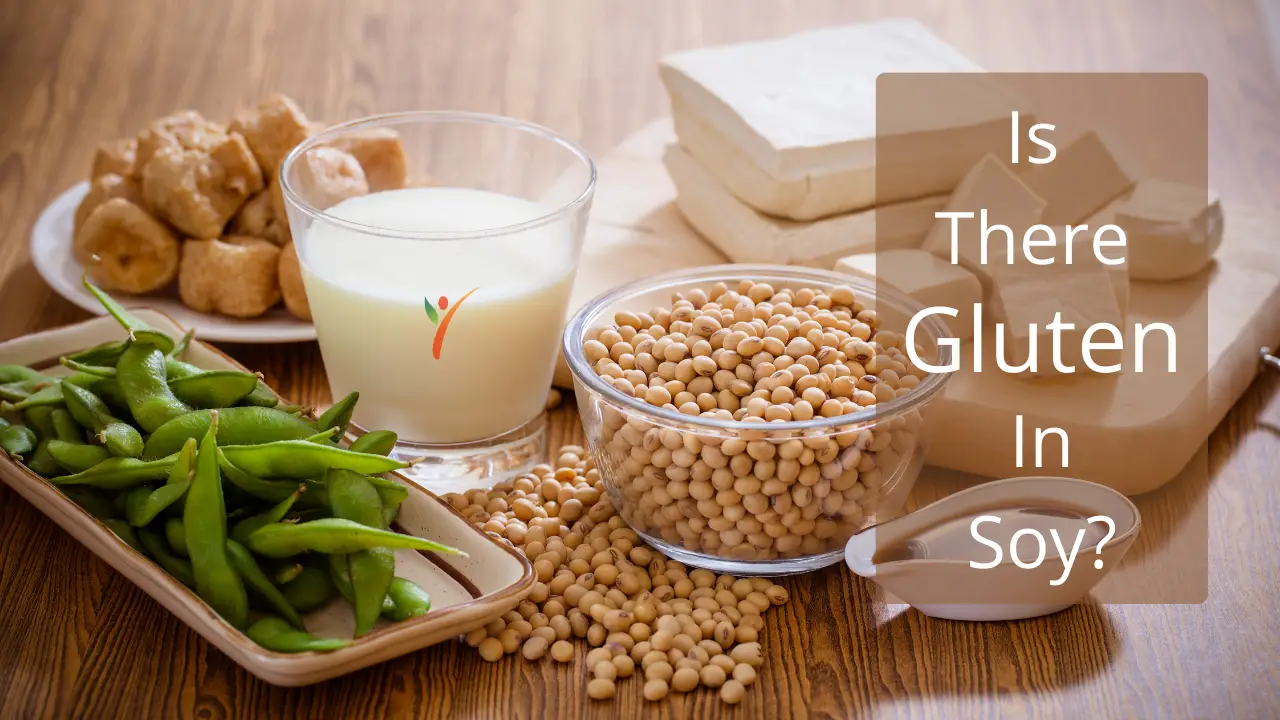Ever wonder if what you are eating suits your body well? Or have you often felt a funny feeling or fallen sick right after consuming a particular meal?
Well, your food might have more to do with your health than you realize. Especially so when you are on a gluten-free diet. So, can you eat Soy on a gluten-free diet? Or is Soy bad for a gluten-free diet?
If these are questions that you often wondered about, let us find the answers together.
Is Soy Gluten-free?
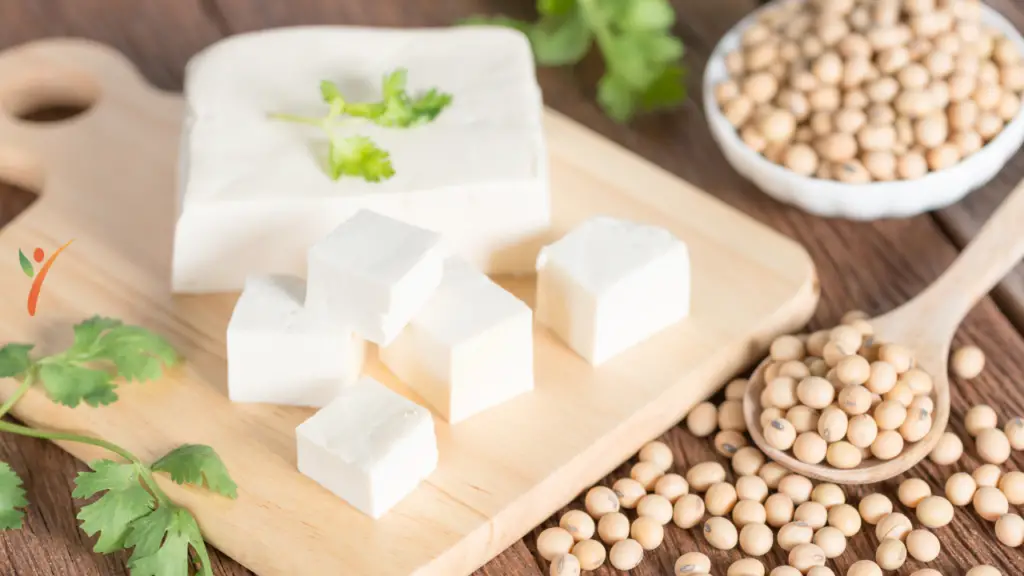
Soy, a soybean, is nothing but a legume type that grows in East Asia. Most vegan alternatives of dairy like milk and cottage cheese come from Soy in Soy milk and Tofu. Soy in its natural form is gluten-free. Like Soy Sauce or Soy oil, the products derived from it are not necessarily gluten-free. There are high chances of contamination of gluten in these products.
Soybeans in their pure form do not contain gluten. But do you still find yourself reacting to meals with Soy on a gluten-free diet? That may have something to do with the product itself you are consuming. Although Soy may be the main ingredient in such products, it may not necessarily have gluten-free ingredients. Other ingredients used in such products may have gluten in them too. Therefore, you need to check what ingredients you are consuming with the Soy thoroughly.
Is Soy-Flour Gluten-free?
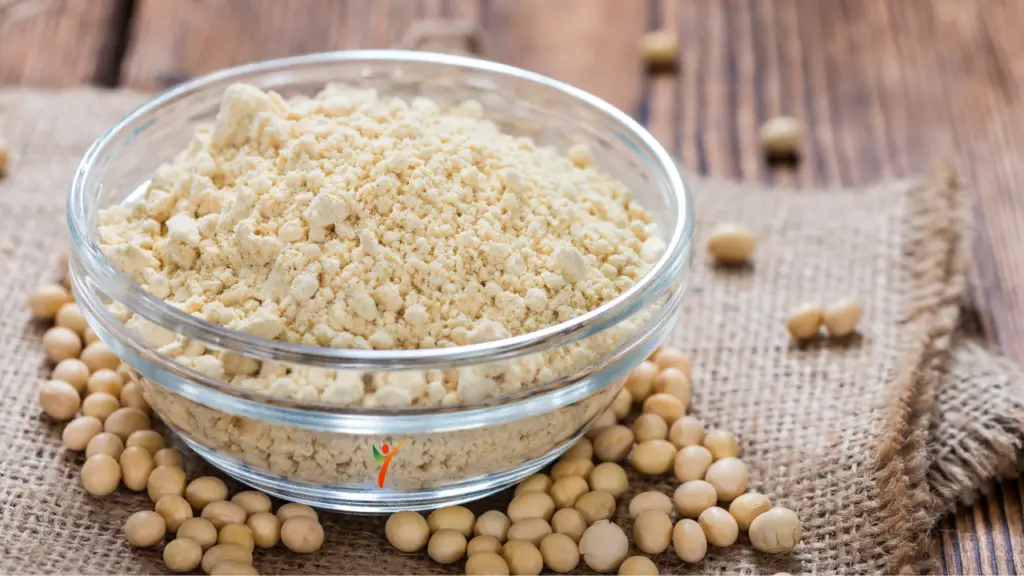
Soy flour is made only with the soybeans that ground into a fine powder. When this flour goes through the grinding process without any other grains in the same mill, it may indeed be gluten-free.
It may contain other grains, especially wheat, rye, or barley, processed in the same mill. There are high chances of gluten contamination.
Therefore, if you happen to buy soy flour, you must ensure that you check its labels thoroughly. Most often, the sources where the flour comes from comes with labels. To avoid any traces or chances of gluten contamination, you must buy soy flour from only authentic brands with proper labels.
One may frequently require using some soy flour or soy protein. To get the best gluten-free options, brands like Bob's Red Mill or Arrowhead Mills are some of the best.
You could try these brands, and they will prove to be of the finest quality of gluten-free soy flour.
Are Soybeans Gluten-free?
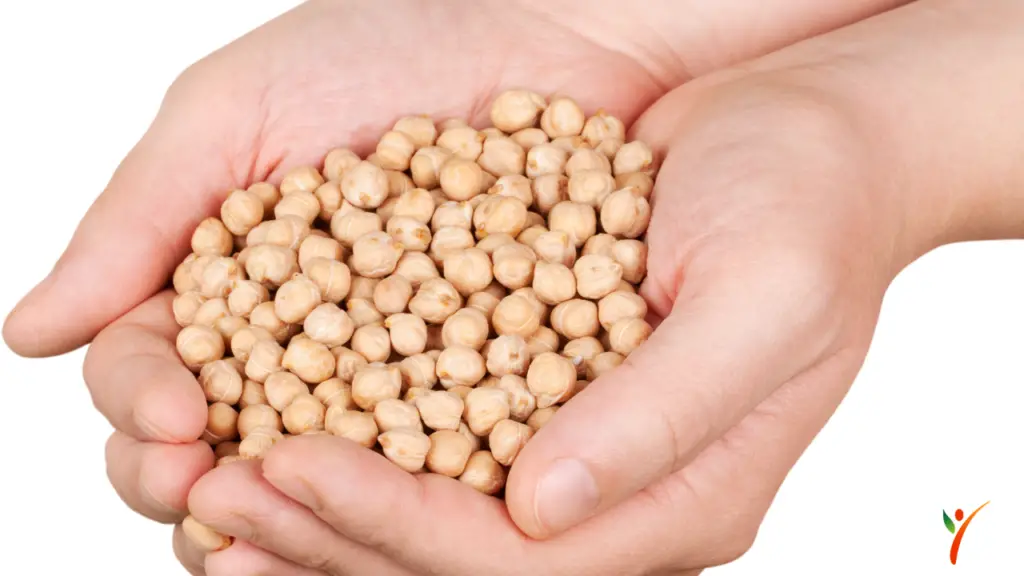
Soy or soybean is one of the most typical ingredients in most food items. So, can you eat Soy on a gluten-free diet, or must you avoid it?
If Soy is grown in the right conditions, the soybean naturally becomes gluten-free. But most farmers tend to grow Soy in rotation with wheat crops. That is where the problem arises. If the same fields are harvesting different crops or are using a shared storage facility for the wheat products and the soybean, you will have gluten-contamination. Quite often, they may also use the same vehicles for transporting the produce to the market. It can undoubtedly lead to a severe case of gluten cross-contamination.
So, you can never really trust the Soy that comes from such facilities, especially when on a gluten-free diet.
Tricia Thompson, a celiac dietitian, had conducted a study on gluten in 2010. In this study, she had concluded that one of the most gluten-contaminated grains is Soy.
With many of her Soy samples, she found that most of them contained at least 2925 parts per million of gluten. It is way above the maximum of 20 parts per million, deeming the sample gluten-free.
Is Soy Lecithin In Chocolate Gluten-free?
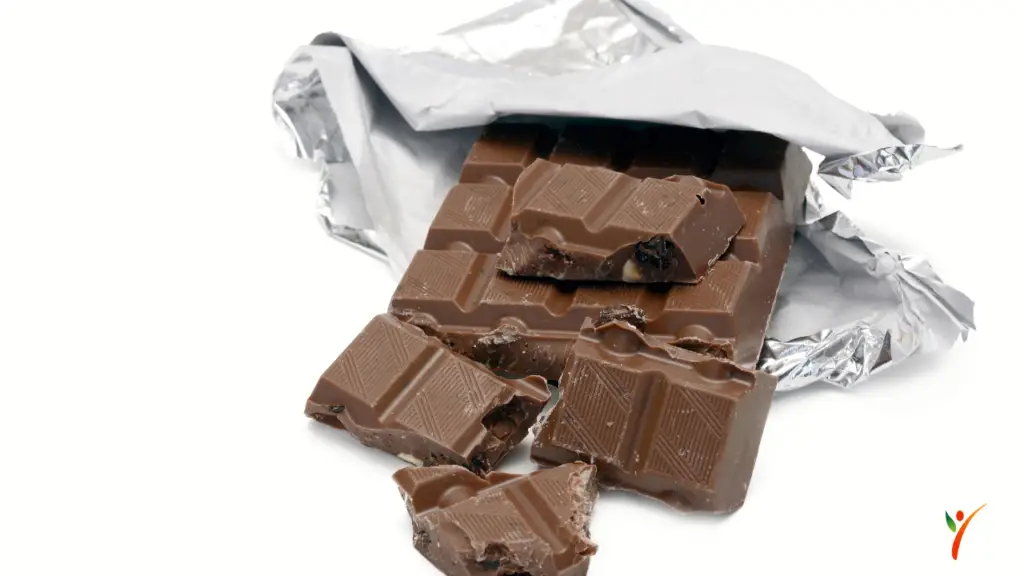
Soy lecithin in its self is gluten-free. Since it does not come out of grains like wheat, rye, or barley, only Soy can put it in gluten-free food.
But there can be no guarantee of remaining gluten-free when there are preservatives added to it. Some additives to prolong the shelf life and taste of the food with soy lecithin may be added to it, which could cause gluten contamination.
That is why you must check the food labels with soy lecithin for any likely gluten-containing additives or preservatives.
Lecithin itself comes out of various plant sources, including the soy plant. It's most commonly used in baking and has several other uses too.
One may use it as a stabilizer, emulsifier, incidental additive, dispersing aid, or release agent in baking. The texture of lecithin is mostly dry and grainy. Since lecithin is a potent agent, it uses as little as less than 1% weight of the final product. That is the recommended limit by the FDA. Some people may also use it as a nutritional supplement.
Although Soy is a beneficial product and one of the most common ingredients in vegan food, it has its drawbacks. It also comes under one of the eight major food allergens according to U.S. Code 361. That is why all food and food products containing Soy need a compulsion label with a reasonable food allergy warning. There is gelatin in lecithin supplement capsules, which also comes with a gluten-free label. The manufacturers make it to make consumption easier for those with gluten allergies.
One may want to check the labels of chocolates for such warnings since soy lecithin content is high in the making of chocolates.
Eating Soy On Gluten-free Diet
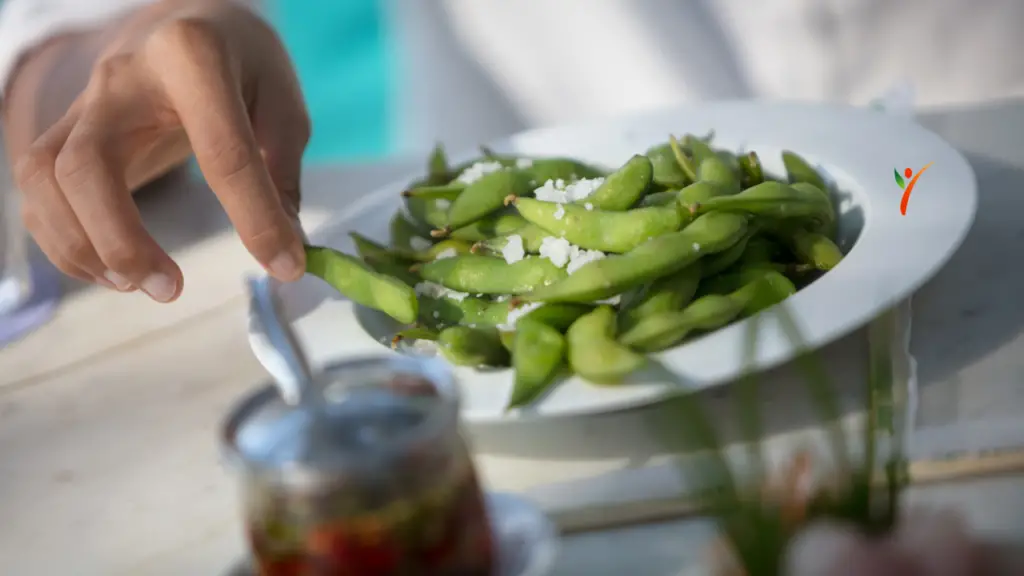
If you tend to react to Soy, you may question whether you can eat Soy on a gluten-free diet?
Well, with your frequent reactions to Soy, it likely stems from an allergy to Soy itself. Soy is one of the largest allergens in itself, and most people's immune system is very reactive to it.
Or it is also likely that you may not have a soy allergy but are allergic to the contamination of gluten in Soy.
You may ask, how about gluten in soy sauce?
Soy sauce is used widely in cooking and had along with many dishes. But any regular soy sauce that we find in the supermarkets is likely to be heavily contaminated with gluten.
It is because soy sauce has wheat in large amounts. It is the same case with soy sauces in restaurants as they all follow the conventional way of making the sauce.
But should you need to use soy sauce and need it in a gluten-free alternative, you can use Tamari. The tamari sauce is soy sauce, albeit with a comparatively thicker texture and richer taste.
This tamari sauce has no wheat in it, and you can safely consume it as a gluten-free soy sauce. Should you want to use gluten-free soy sauces, there are many excellent brands like San-J Soy Sauce. Some other brands include Kikkoman Soy Sauce, Eden organic soy sauce, Kari-Out Soy sauce, and Wan Ja Shan Soy sauce.
Effects Of Soy-Free Diet
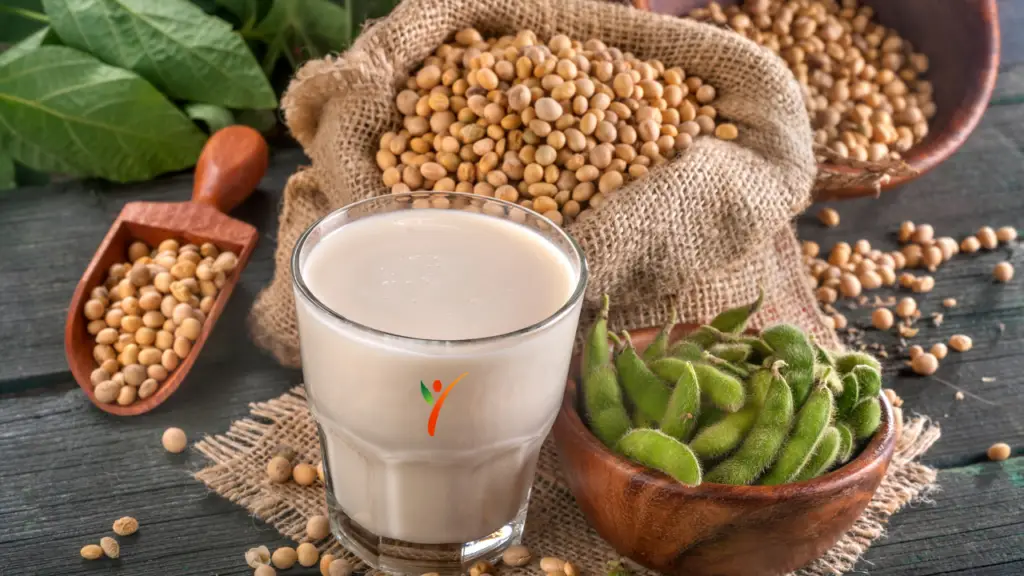
Soy is undoubtedly a savior for people with gluten intolerance or dairy allergies. Many research types have proved Soy to be one of the most nutritious foods. But even so, there are also many harmful reactions to health that can happen due to Soy.
But this happens due to the use and consumption of heavily processed and contaminated Soy. Such Soy types are available in abundance in our local supermarkets, and around 60% of all Soy is genetically modified. It leaves no room for nutrition and only contaminates and degenerates Soy's quality.
If you are planning to go on a Soy-free diet, along with a gluten-free diet, here are some effects that you may soon notice.
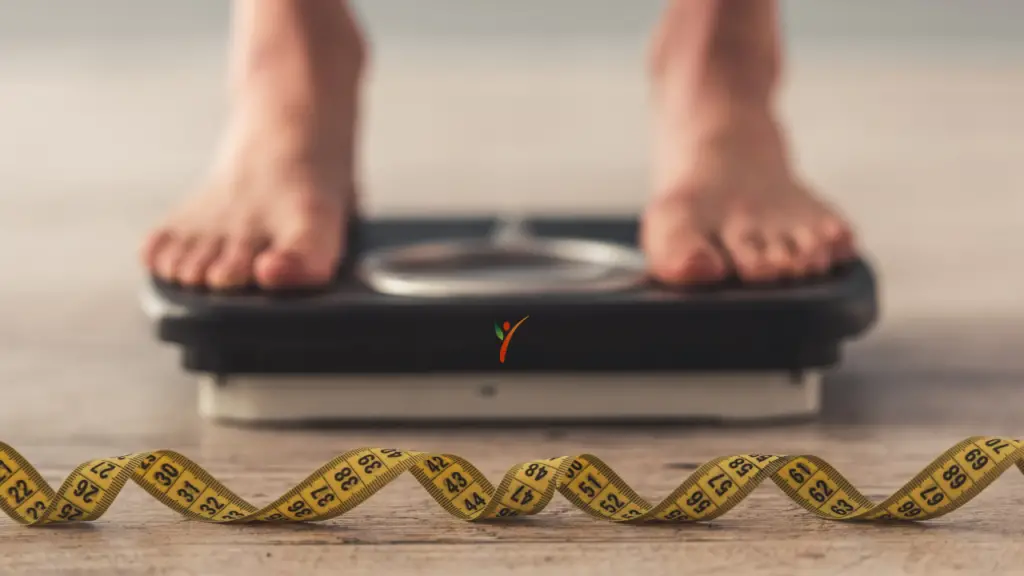
Weight loss
If you have been trying hard to lose the extra weight and get into shape, Soy could be the culprit. It often acts as a blocker to weight loss since it is abundant in estrogen. Soy's estrogenic properties can make your weight loss an even more difficult task to achieve.
You may face problems in the loss of belly fat. Because Soy is rich in estrogen, Soy causes water retention, fat gain, and bloating.
If you are tired of working out a lot and still not seeing its effects, you may want to reconsider your soy eating habits. Try cutting off Soy entirely and see how your exercise routines bring the desired effect of losing the extra weight.
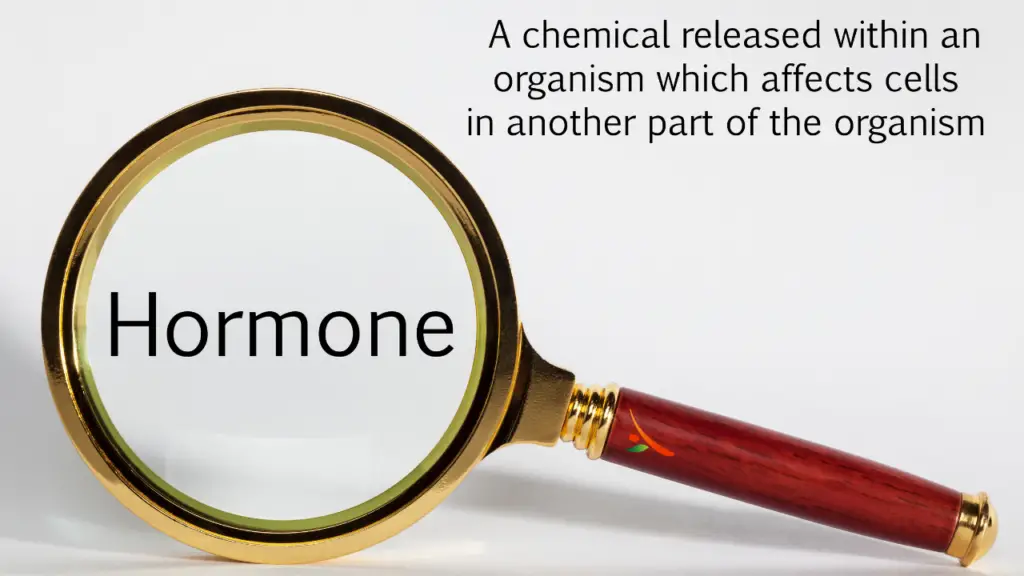
Balanced Hormones
Hormone imbalance is an issue that many people suffer from without knowing what is happening to them and why. Although Soy indeed contains whopping amounts of protein, which is super healthy for the body, it may also create a hormonal imbalance.
The Isoflavones in Soy cause the hormones in the body to be imbalanced. Isoflavones are a type of phytoestrogen. That imitates the chemical structure; of the body's natural estrogen.
When someone consumes a lot of Soy, the isoflavones present in it cause interference in the body's regular estrogen activity. It may further cause reproductive issues in both females and males.
It may make males suffer from a low sperm count due to testosterone imbalance.
When Soy is cut off from the diet entirely, one may find a natural balance in their hormones evident from their health and lack of mood swings.

Healthier lifestyle
Having a healthier and happier lifestyle is something we all desire. When you do not suffer from any health concerns and frequent scares, your thoughts are likely to be calm and clear. With a quiet mind, you also tend to be happier and healthier. Eating a diet free of gluten will enhance this.
Soy also contains high amounts of Phytates. These are antioxidant compounds that ligate to dietary minerals in the stomach. It thus slows down their absorption.
The body then craves more of Vitamin B-12, D, and Calcium. Thus, Soy is a food product that causes a lack of nutrients and minerals in the body. With Soy's elimination from your diet, your body learns to absorb the essential nutrients from other foods and be at its optimal health.
Effects Of Gluten-free Diet

The impact of a gluten-free diet is more positive than negative. Once you adapt to a lifestyle without gluten, you would instantly notice some changes like –
No bloating
Gluten is one of the significant reasons for bloating. So if you usually feel quite bloated and heavy after having specific meals, especially with gluten, the reason could be the heavy amounts of gluten in it. Eliminating gluten from the diet will help you realize how bloating is never as frequent as when consuming gluten. This way you also experience a comfortable lifestyle and can enjoy your meals heartily.
Fewer Headaches
If you have frequent headaches without a proper explanation, it may have something to do with gluten consumption. It may not necessarily be a regular headache that you keep ignoring.
If you try going gluten-free, you may notice that the headaches have almost disappeared or become much less frequent than before.
Clear Thoughts
Brain fog is a widespread occurrence in people with gluten intolerance when they consume gluten. If you have celiac sickness or are gluten intolerant, you should try a gluten-free diet. And soon, you will realize that your brain fog lifts, and you can have more exact thoughts.
Effects Of Gluten-free, Soy-Free Diet

The answer to the question of can eat Soy on a gluten-free diet is yes and no. If you choose to consume Soy, you must ensure that it comes from gluten-free sources and there was no chance of contamination along the way.
Eating Soy itself isn't harmful as long as it is done sparingly and you read the ingredients for any hidden source of gluten.
And should you need Soy for any reason, you must ensure buying it from only trusted gluten-free brands.

